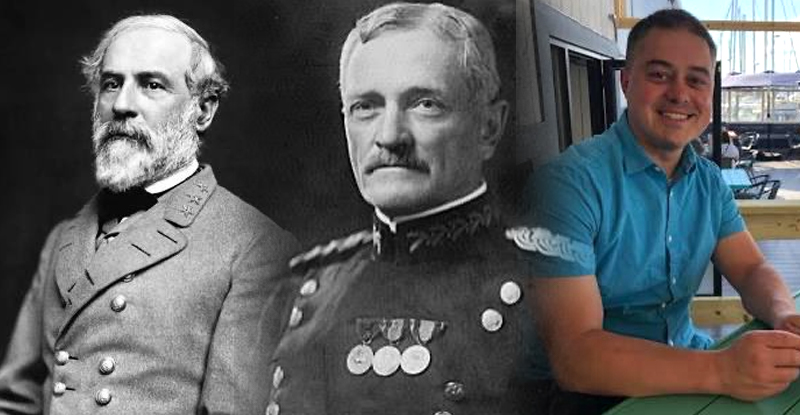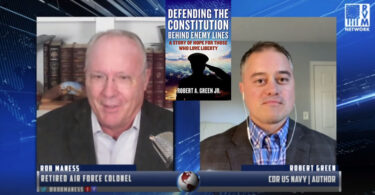By @InfantryDort on X, active duty Army Major
Tortured Warrior XVI: Robert E. Lee
The Torment
Lee was born to greatness but haunted by ruin. His father, “Light-Horse Harry” Lee, a hero of the Revolution, left the family in disgrace and debt. Young Robert grew up with a proud name but little else. He clawed his way through West Point with brilliance and discipline, becoming one of the Army’s finest officers. Yet when the nation split in 1861, torment followed him. He was offered command of the Union Army, but his heart remained with Virginia. His decision to resign tore his soul. To many he was now both patriot and traitor — bound to carry that scar forever.
The Breaking Point
Lee led the Army of Northern Virginia through triumph and disaster, but the war ground him down. He watched thousands of his men fall at Gettysburg, and tens of thousands more bleed through the Overland Campaign. At Appomattox, he met Ulysses Grant not as the hero of victories past but as the defeated general of a dying cause. He bore the weight of national hatred, the knowledge that his decision had helped unleash ruin on the land he loved. His citizenship stripped, his name cursed in the Union, he seemed destined for eternal infamy.
The Transcendence
Yet Lee refused to let bitterness consume him. He became president of Washington College, urging reconciliation and peace. He told young men to turn from rebellion and devote themselves to rebuilding the nation. He carried himself with humility, dignity, and silence, helping heal the wounds of a shattered republic. In 1975, a century after his death, Congress posthumously restored his citizenship — an act that acknowledged not only the scars of his choices, but his role in seeking peace after war.
The tortured warrior is often condemned in life and reconsidered in death. Lee bore the torment of impossible choices, the shame of defeat, and the judgment of history. Yet his scars became a bridge, helping bind up the wounds of a young nation struggling to survive.
—
Tortured Warrior XVII: John J. Pershing
The Torment
Pershing’s climb was steep and lonely. He spent years in obscurity, bouncing from frontier posts to forgotten outposts. His nickname “Black Jack” — given for commanding Buffalo Soldiers — was first hurled as a slur by peers who resented him. The real torment struck in 1915, when a fire swept through his quarters at the Presidio. His wife and three young daughters were killed. Only his six-year-old son survived. Pershing returned to find his family gone, his life reduced to ash. He carried that scar to his grave.
The Breaking Point
Pershing’s military career was nearly shattered more than once. In the early 1900s, political enemies tried to drag his name into scandal. Rumors swirled — whispers of impropriety, accusations of adultery. Though never proved, the charges were used by rivals to weaken him. He endured investigations, whispers in the press, and the poisonous politics of an Army jealous of his rapid promotions. He could have been broken — cast out as a disgraced officer long before the Great War.
The Transcendence
But Pershing endured. He rose to command the American Expeditionary Forces in World War I. He built an army of millions from nothing, steered it through the chaos of the trenches, and hammered the German lines at the Meuse-Argonne. He became the only living man promoted to General of the Armies, the highest rank ever bestowed. His scars — the grief of his family, the smears of rivals, the torment of political attack — became the iron of his character.
The tortured warrior is not measured only by victories but by survival of disgrace and grief. Pershing lost more than most men could bear and faced ruin at the hands of slander, yet rose to become the commander who carried America to victory on the fields of France.
—
Tortured Warrior XVIII: Commander Robert A. Green Jr. @RobGreen1010
The Torment
Rob Green was not broken by combat abroad but by betrayal at home. A career Navy officer, he swore an oath to defend the Constitution. Yet he watched the institution he served twist itself into something unrecognizable during the COVID mandate. He carried the weight of conscience as peers stayed silent. His duty to the law and to liberty became a torment — because truth in the modern military is a dangerous burden.
The Breaking Point
When he spoke, the Navy came for him. He was banned from his own building. Relieved of command over 650 Sailors. Branded as disloyal not for failing in battle, but for daring to defend the rights of those in uniform. He poured his scars into words, writing Defending the Constitution Behind Enemy Lines — a book that exposed the unlawful coercion, cover-ups, and corruption he had witnessed. His testimony was dragged into federal courts as evidence. He endured reprisal, isolation, and the full weight of an institution bent on making an example of him.
The Transcendence
But he did not break. Instead, he became something more dangerous than a silent officer — he became a witness. He carried his fight beyond the lifelines of his command into the larger battle for accountability. His scars became fire, his name became a weapon, his resolve became a shield for those who could not speak.
The tortured warrior is not always scarred by foreign enemies. Sometimes he is scarred by betrayal within his own ranks. Rob Green stood against the tide, endured the punishment of his own service, and turned torment into testimony.








Leave a Comment